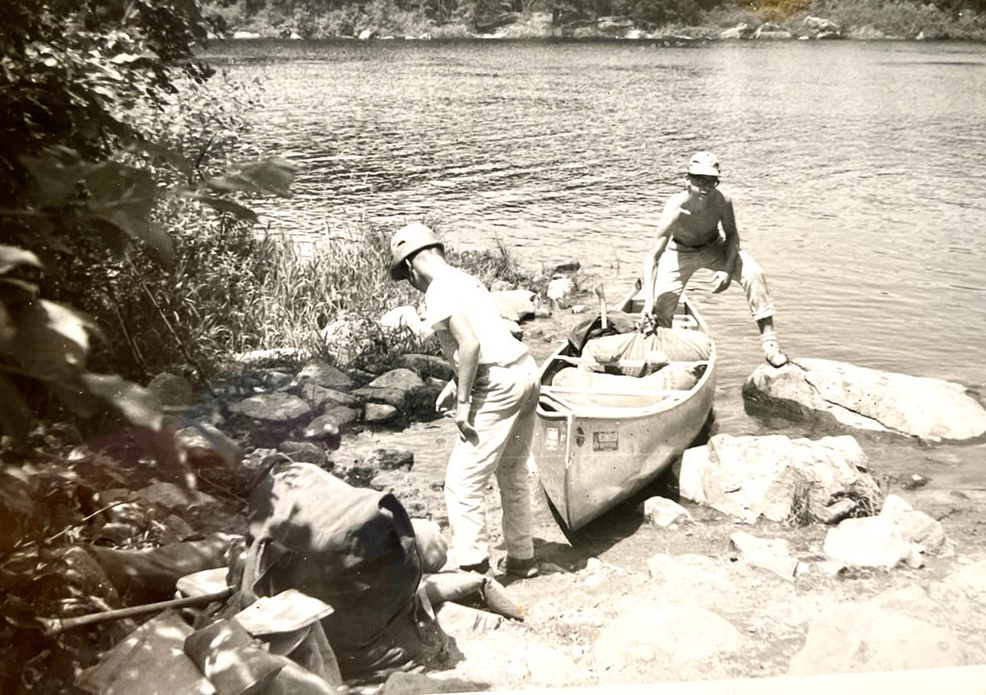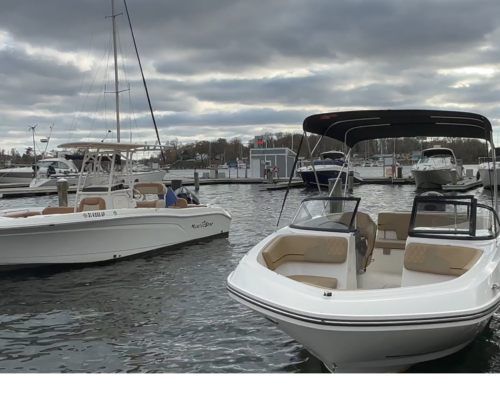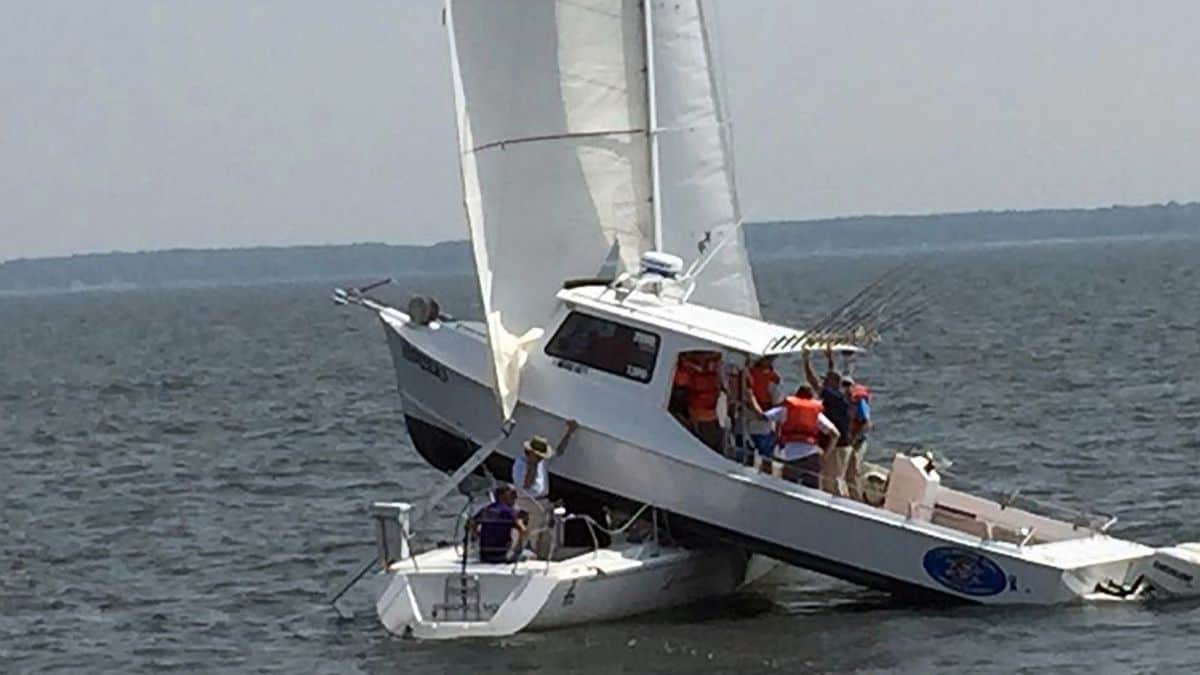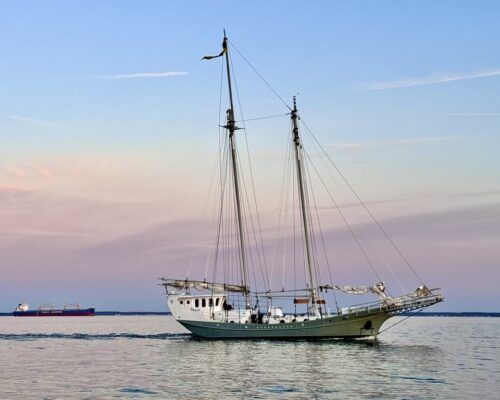The Marsh Arab is a 17-foot Grumman canoe with several decades of history paddling all over the Chesapeake’s tidal rivers and creeks. For seven years in the late 1970s and early ’80s, she was my office, five days a week between mid-March and mid-December as we offered one-, two-, and three-day field trips to school classes and adult groups under the aegis of the Chesapeake Bay Foundation’s environmental education program. Those people paddled eight of her sisters, which traveled stacked on a trailer behind the pickup truck that carried her.
Where did we go? Everywhere, at all seasons except the dead of winter. She has explored the cool, fresh headwaters of the Choptank’s King’s Creek, the wild rice marshes of the Chickahominy’s Gordon’s Creek, Swan Creek hard by the Susquehanna Flats, the Big Salt Marsh at Poquoson, and the salt marsh at the mouth of Swanscut Creek, where it meets Chincoteague Bay. We’ve spent over 400 days on the Patuxent’s Mattaponi Creek, just below Jug Bay.
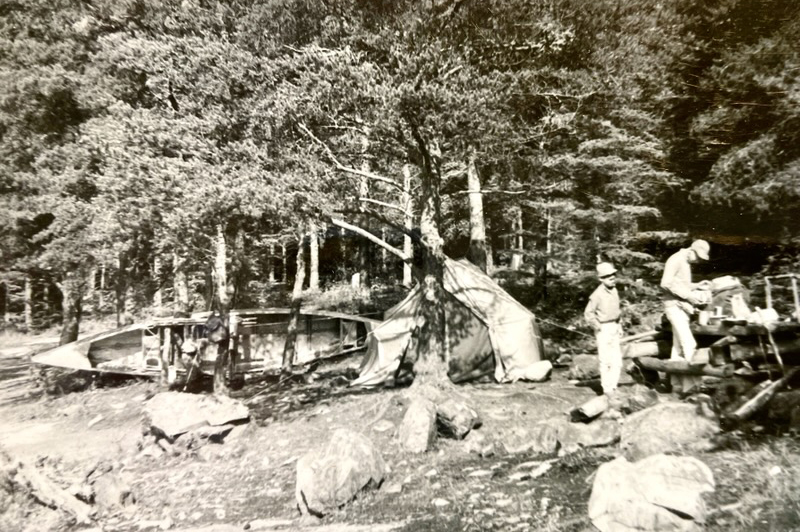
She has hauled dry clothes, first-aid kits, water quality analysis gear, a depth sounder/fishfinder, a 30-foot minnow seine on 6-foot poles, and two kinds of fyke nets (bank-pole and anchored), which we set to catch everything from perch, carp and largemouth bass to occasional snapping turtles and diamondback terrapins. She is stable enough that I could stand to throw a cast net for peanut menhaden. Later, in semi-retirement, she spent more of her time on the Severn River, prowling underwater grass beds in warm weather, looking for white perch and occasional rockfish. In winter, she was my taxi for wade-fishing for chain pickerel. She taught my daughter, Kelly, to paddle, and soon will teach her daughters, Elizabeth and Mary Page, who will become her new owners.
If paddling a kayak is like driving a sports car, then the Marsh Arab and her kin perform more like pickup trucks, but that’s the point. These boats evolved in North America precisely for their utility, especially for load-carrying. Yes, my cargo on CBF trips was unusual, but consider how the same capability serves a family with a pair of small children or a couple who enjoy paddling together, especially on camping trips. Solo paddling? No law restricts the occupant to a single paddle. I frequently used a two-piece, 9-foot-long double blade when going solo in the Marsh Arab. Speed for that setup is comparable to that of a strong tandem crew, and control in headwinds (a frequent condition on the Chesapeake’s tidal creeks and rivers) is outstanding.
No one would accuse a 17-foot aluminum canoe of being a classic beauty, though the Marsh Arab’s lines follow those of a turn-of-the-20th-century wood-and-canvas model known for all-around utility. Nor is she super-fast. On the other hand, she is seaworthy, stable, outlandishly durable, virtually maintenance-free, and supremely useful. She has enriched my life and those of many other people. I’m delighted to send her on to a new generation.
Editor-at-Large John Page Williams is a fishing guide, educator, author and naturalist, saving the Bay since 1973.

